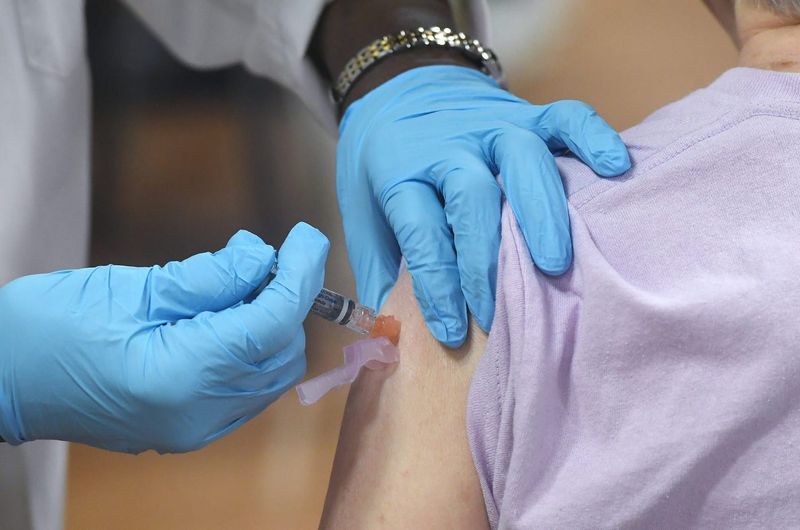Is it flu season yet? Not quite.
Flu season typically runs from October to May, with activity peaking during the colder months. It’s “not possible to predict what each flu season will be like,” according to the Florida Department of Health, but the CDC recommends getting vaccinated by the end of October — before cases begin to rise.

While Florida is still experiencing warm weather, major pharmacies like Walgreens and CVS are already offering flu shots. Here’s what to know about where you can get one now.
When does flu season peak in Florida?
“The flu reporting year uses standard reporting weeks outlined by the Centers for Disease Control and Prevention (CDC), where every year has 52 or 53 reporting weeks. Though flu season ends May 17, 2025 (week 20), surveillance continues year-round,” the Florida Department of Health’s website says.
“Seasons vary in timing, severity, and duration. It is not possible to predict what each flu season will be like in Florida.”
Flu season typically starts in late September or early October, when the weather starts to cool down, and usually sticks around until May. Flu season typically peaks mid-to-late winter, from around December through February.
Last year’s flu season was exceptionally infectious, with cases reaching a 15-year high in the U.S. according to CDC reports.
What are some common flu symptoms?
Common symptoms include fever, chills, cough, sore throat, runny or stuffy nose, body aches, headaches and fatigue. Children may also experience vomiting or diarrhea. Older adults (65+), young kids, and people with certain health conditions are more likely to have complications. The most effective way to help protect yourself each year is by getting a flu shot.
What does the 2025-2026 flu shot protect against?
This season’s vaccine protects against three influenza viruses that research indicates will be most common during the season. This includes two influenza A subtype viruses (H1N1 and H3N2-like) and an influenza type B virus.
According to Walgreens, “the vaccine takes effect approximately two weeks after it has been administered as antibodies (substances in the blood that protect against infection) are made by your body to help provide protection against influenza.”
This means you may still be vulnerable to influenza during the two weeks following your flu shot, so it’s important to get vaccinated before the flu starts spreading in your area.
Who should get a flu shot?
The CDC recommends that everyone aged 6 months and older get a flu shot each flu season, regardless of whether they are healthy or have underlying health conditions.
Anyone who wants to lower their risk of getting the flu should get vaccinated. It’s especially important for those at higher risk of serious complications, such as pneumonia. This includes:
According to CDC data, certain racial and ethnic minority groups — such as non-Hispanic Black, non-Hispanic American Indian or Alaska Native, and Hispanic or Latino people — are more likely to be hospitalized with the flu, highlighting the importance of vaccination in these communities.
Who should not get a flu shot?
Walgreens says the flu shot should not be given to the following:
Where to get walk-in flu shots in Jacksonville, FL
What should I bring to my flu shot appointment?
Which Walgreens in Jacksonville offers flu shots?
Here are some of the Jacksonville Walgreens locations offering flu shots:
Not sure which location is closer to you? Visit the clinic locator
Which CVS in Jacksonville offers flu shots by MinuteClinic?
Not sure which location is closer to you? Visit the clinic locator
Which CVS in St. Augustine offers flu shots in St. Augustine?
2703 N. Ponce de Leon Blvd., St. Augustine, FL 32084, schedule an appointment at this location
Are flu shots free? How much is a flu shot with and without insurance?
Can I get a flu shot without insurance? How much is it?
Yes. Walgreens is offering a voucher to people without insurance to grant access to free flu shots at no cost. Find a Walgreens near you.
What is a Trivalent flu vaccine composed of?
According to the CDC, all flu vaccines for the 2025-2026 season are anticipated to be trivalent in the United States. The CDC says Trivalent flu vaccines are formulated to protect against three main groups of circulating seasonal influenza Type A and B viruses: an A(H1N1) virus, an A(H3N2) virus, and a B/Victoria lineage virus. All flu vaccines for the 2025-2026 season are anticipated to be trivalent in the United States.
When is the best time to have a flu vaccine?
You can get a flu shot whenever you see fit to do so. There are no rules about when you can or can’t get a vaccine, but the CDC recommends getting your shot in September or October.
“For most people who need only one dose of influenza vaccine for the season, September and October are generally good times to be vaccinated against influenza,” the CDC says. “Ideally, everyone should be vaccinated by the end of October.”
Here are some other things to consider when it comes to the timing of your flu shot, according to the CDC’s website:
Can I get a flu shot and COVID-19 vaccine at the same time?
Yes, you can get your flu shot and other vaccines at the same time, according to the CDC. It’s a great way to save time and stay protected. Vaccines that are commonly given in the same visit include shingles, pneumococcal, flu, COVID-19, and RSV (if you’re eligible).
Contributing: Lianna Norman, The Palm Beach Post
This article originally appeared on Florida Times-Union: Flu season is coming: Walgreens and CVS now offering shots. Here’s where to get yours
Reporting by Doris Alvarez Cea, Jacksonville Florida Times-Union / Florida Times-Union
USA TODAY Network via Reuters Connect


